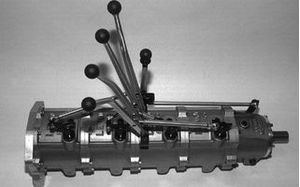Automakers Race to be Ready for Stricter WLTP tests
Car manufacturers have faced the problem of
slumping sales caused by changes in the EU's vehicle type approval (VTA) rules.
According to the recent studies, some car brands such as VW, Audi and Nissan may
not be 100% prepared for the implementation of the amended testing procedures.
With the beginning of fall 2019, all upcoming cars put up to sale in Europe subjected to the recertification in accordance with the new parameters for the new WLTP standard, which was accepted a year ago instead of the previous NEDC. It is said that the majority of carmakers proceed according to schedule with the certification of their new line-ups, but VW admitted that it still needed some time to finish up the preparation.

According to the VW representative, all engine-gearbox variants (with several exceptions) will meet a new emission standard. The remaining ones will be 100 % compliant in a matter of weeks. The state of things in the VW’s department of commercial vehicles is much worse: just 33% of its engine-gearbox options gained certification at the start of August. Therefore, VW will have to suspend the manufacturing of some models. For instance, it became known that the VW Crafter won’t be available in any configuration until 2020.
VW suffered the most by introduction of WLTP regulations last year because a great part of its certification resources was focused on dealing with negative repercussions of the “Dieselgate” scandal, causing significant problems in delivery terms and sales. This year, dealerships came up short because of delays in obtaining new cars. Therefore, many customers gave preference to other brands and it can be said that they are lost for VW in the foreseeable future.
Last year, VW said that the possibility of temporary delays in supply cannot be excluded during the 2-nd half of 2019. It is claimed that VW suffered a loss of approximately € 1 bln euros in 2018 due to a restricted offering due to WLTP restrictions. The major novelty in VTA rules lies in a prolonged EVAP emissions testing for gasoline cars to determine the level of emissions when the car remains unused for some time.
Learn more about WLTP testing
According to TUEV Sued, a company responsible for monitoring proper implementation of testing procedures, each engine-transmission pair must be thoroughly tested. Now it is said that the majority of carmakers learned a good lesson from last year’s negative experience. The car producers seem to be ready for testing procedures. Mercedes-Benz, for instance, doubled the labor hours at its facility which is responsible for certification testing for all major markets. Now, this facility operates on triple-shift basis during the week and in some cases even on Saturdays to cope with the work load.
It can take ten labor days to put a car through all the required steps related to different types of emission tests under humidity-free conditions. It is interesting to point out that the process of actual testing may only take 1 hour, when the most time-consuming part is the preparation in between tests. For instance, as cars can only gain certification when fueled with the EU approved standard fuel, the newly-built car has to have its tank drained and then be refuel. Testing specialists also have to take into consideration required holding (soaking) periods to make sure that engine oil and coolant temperatures are at permissible testing levels.








